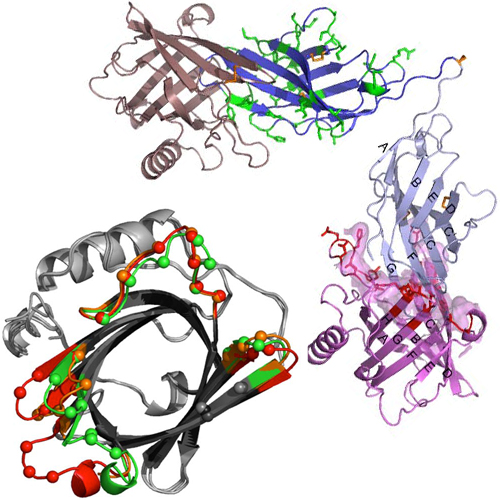An engineered lipocalin specific for CTLA-4 reveals a combining site with structural and conformational features similar to antibodies
05-May-2009
Biomolecular reagents that enable the specific molecular recognition of proteins play a crucial role in basic research as well as medicine. Up to now, antibodies (immunoglobulins) have been widely used for this purpose. Their predominant feature is the vast repertoire of antigen-binding sites that arise from a set of 6 hypervariable loops. However, antibodies suffer from practical disadvantages because of their complicated architecture, large size, and multiple functions. The lipocalins, on the other hand, have evolved as a protein family that primarily serves for the binding of small molecules. Here, we show that an engineered lipocalin, derived from human Lcn2, can specifically bind the T cell coreceptor CTLA-4 as a prescribed protein target with subnanomolar affinity. Crystallographic analysis reveals that its reshaped cup-like binding site, which is formed by 4 variable loops, provides perfect structural complementarity with this “antigen.” Furthermore, comparison with the crystal structure of the uncomplexed engineered lipocalin indicates a pronounced induced-fit mechanism, a phenomenon so far considered typical for antibodies. By recognizing the same epitope on CTLA-4 that interacts with the counterreceptors B7.1/B7.2 on antigen-presenting cells the engineered Lcn2 exhibits strong, cross-species antagonistic activity, as evidenced by biological effects comparable with a CTLA-4-specific antibody. With its proven stimulatory activity on T cells in vivo, the CTLA-4 blocking lipocalin offers potential for immunotherapy of cancer and infectious disease. Beyond that, lipocalins with engineered antigen-binding sites, so-called Anticalins, provide a class of small (≈180 residues), structurally simple, and robust binding proteins with applications in the life sciences in general.











